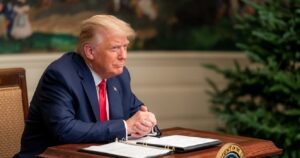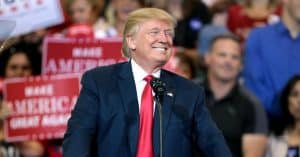U.S. alters statement on Taiwan relations, provoking China's discontent
In a move that has sparked criticism from Chinese authorities, the United States State Department recently revised its fact sheet on Taiwan, leading to diplomatic tensions between the two nations, Fox News reported.
The revision involved the exclusion of a phrase that previously stated the U.S. does not back Taiwan's declaration of independence, although the department maintains that its core policies regarding Taiwan remain consistent.
Last Thursday, the U.S. State Department made a subtle but significant alteration to its document on relations with Taiwan by removing the phrase indicating non-support for the island's independence.
This decision immediately drew the ire of Chinese officials, who perceived the modification as an implicit gesture favoring Taiwan's independence aspirations.
China Calls For Immediate Correction
Chinese representatives did not withhold their dissatisfaction, urging the U.S. to "immediately correct its wrongdoing." The deletion of the phrase from the fact sheet is viewed in Beijing as a potential boost for pro-independence groups within Taiwan, further amplifying regional tensions.
In response to the criticism, a spokesperson from the State Department reiterated the unchanged nature of the U.S. stance towards Taiwan. The spokesperson affirmed the U.S. commitment to upholding stability within the Taiwan Strait, emphasizing the importance of dialogue between both sides.
The U.S. message of dialogue is backed by a longstanding policy known as the "One China" policy. Historically, this policy acknowledges Beijing as the sole legitimate government of China while only unofficially recognizing Taiwan, which operates with its own government.
Historical U.S. Policy And Current Relations
The U.S. has never established formal diplomatic ties with Taipei, evident in the absence of an official American embassy there. Despite this, the U.S. remains actively involved in supporting Taiwan, especially in terms of defense.
The lack of diplomatic recognition hasn't hindered the U.S.'s role in Taiwan's defense, working collaboratively with Western nations to resist any possible aggression or annexation attempts by China. This support is seen as indispensable, considering the consistent threats of military action by Chinese President Xi Jinping.
Xi has repeatedly expressed a willingness to employ military force to bring Taiwan under Chinese governance, exacerbating fears of potential conflict in the region. The island of Taiwan has operated independently since 1949 when Chinese forces promoting democratic rule took refuge there following a defeat to communist forces on the mainland.
Military Movements In The Taiwan Strait
In recent weeks, the United States demonstrated its commitment to peace and stability in the region through military presence in the Taiwan Strait. Two U.S. naval vessels navigated through the strait, an action not received well by China, which interpreted it as a provocative measure.
A Canadian ship also traversed the strategic waterway, further compounding diplomatic frictions between China and Western nations. Such maneuvers, while routine in international waters, carry significant political implications, underscoring the delicate balance nations strive to maintain in cross-Strait relations.
Amid these developments, the U.S. continues to champion peace and dialogue. A State Department statement stressed opposition to any unilateral efforts to alter the status quo, advocating for reconciliatory measures that respect the interests of both Taiwan and China.
The Call For Diplomatic Engagement
Both the U.S. and China remain locked in a complex diplomatic dance, each side navigating the intricacies of international relations with caution. While China pressures the U.S. for a retraction of its modified stance, many in Taiwan perceive the alteration as a subtle acknowledgment of their independent governance.
For years, Taiwan's status has been a sensitive topic circulating international political discourse, with implications far beyond the Taiwan Strait. As an entity with a democratically elected government, Taiwan represents a significant instance of separatism that China's central leadership avidly opposes.




